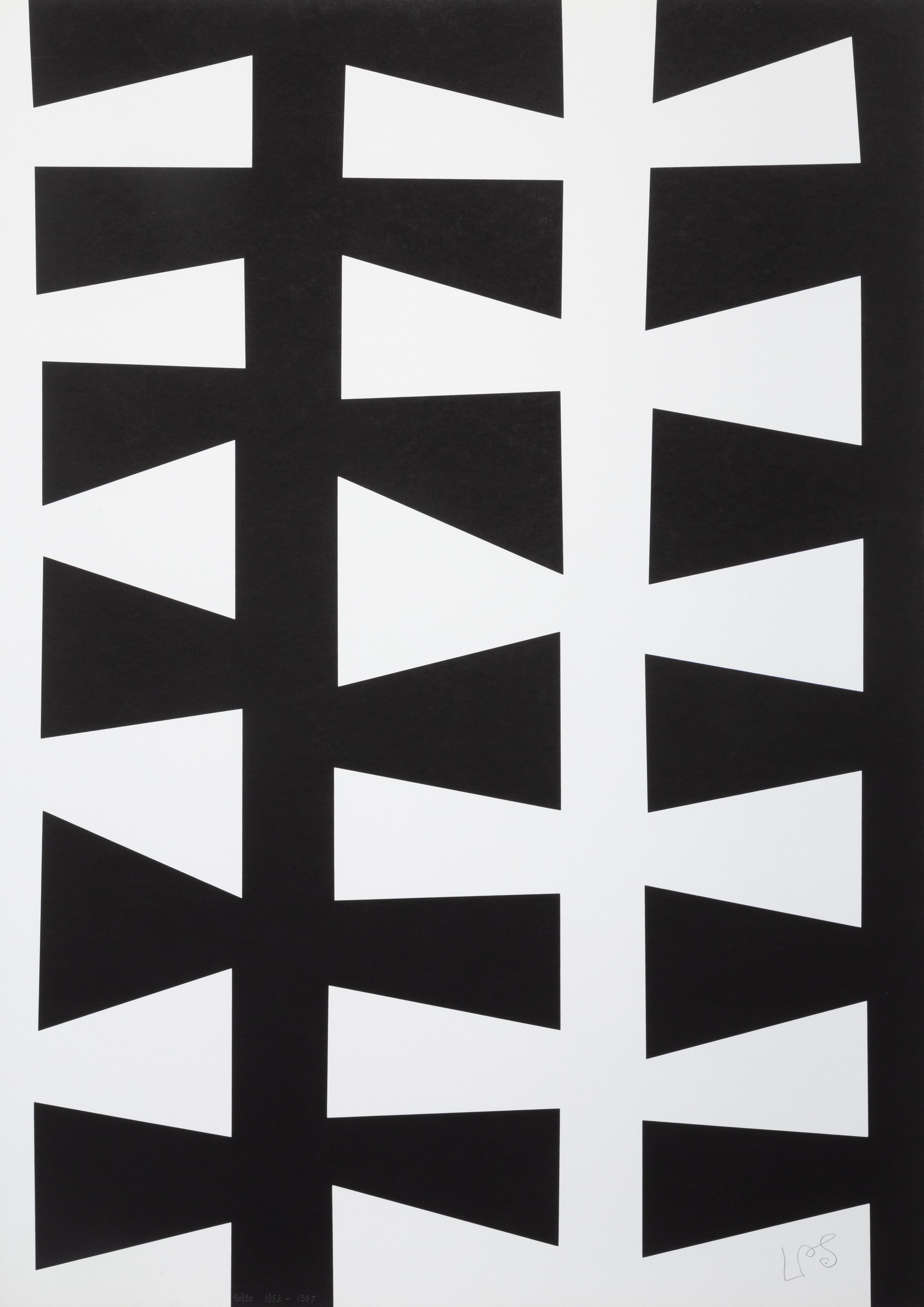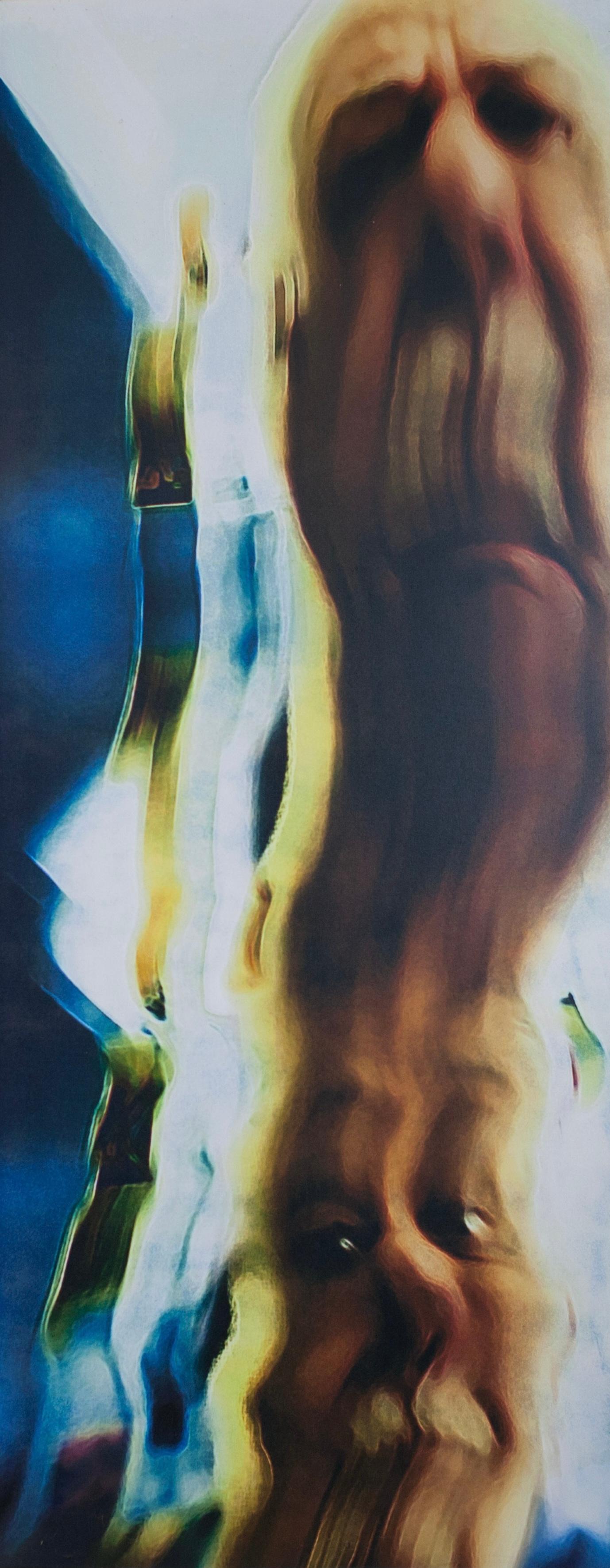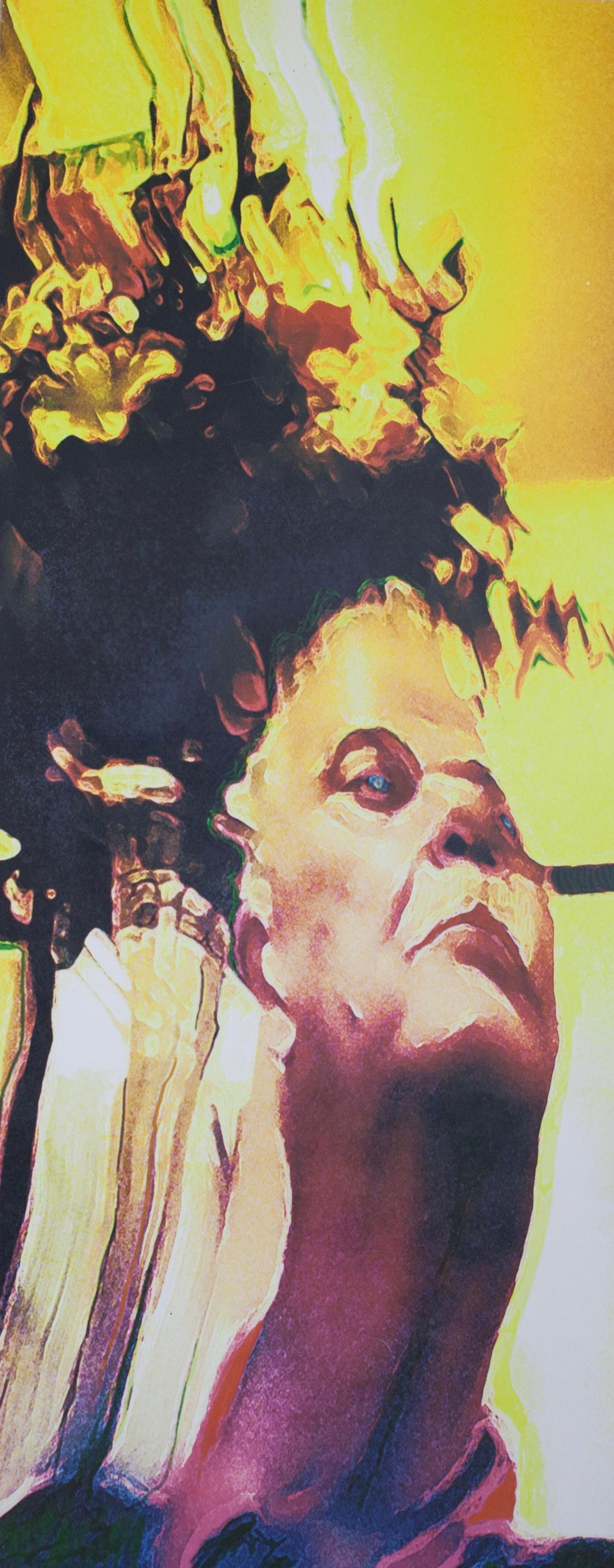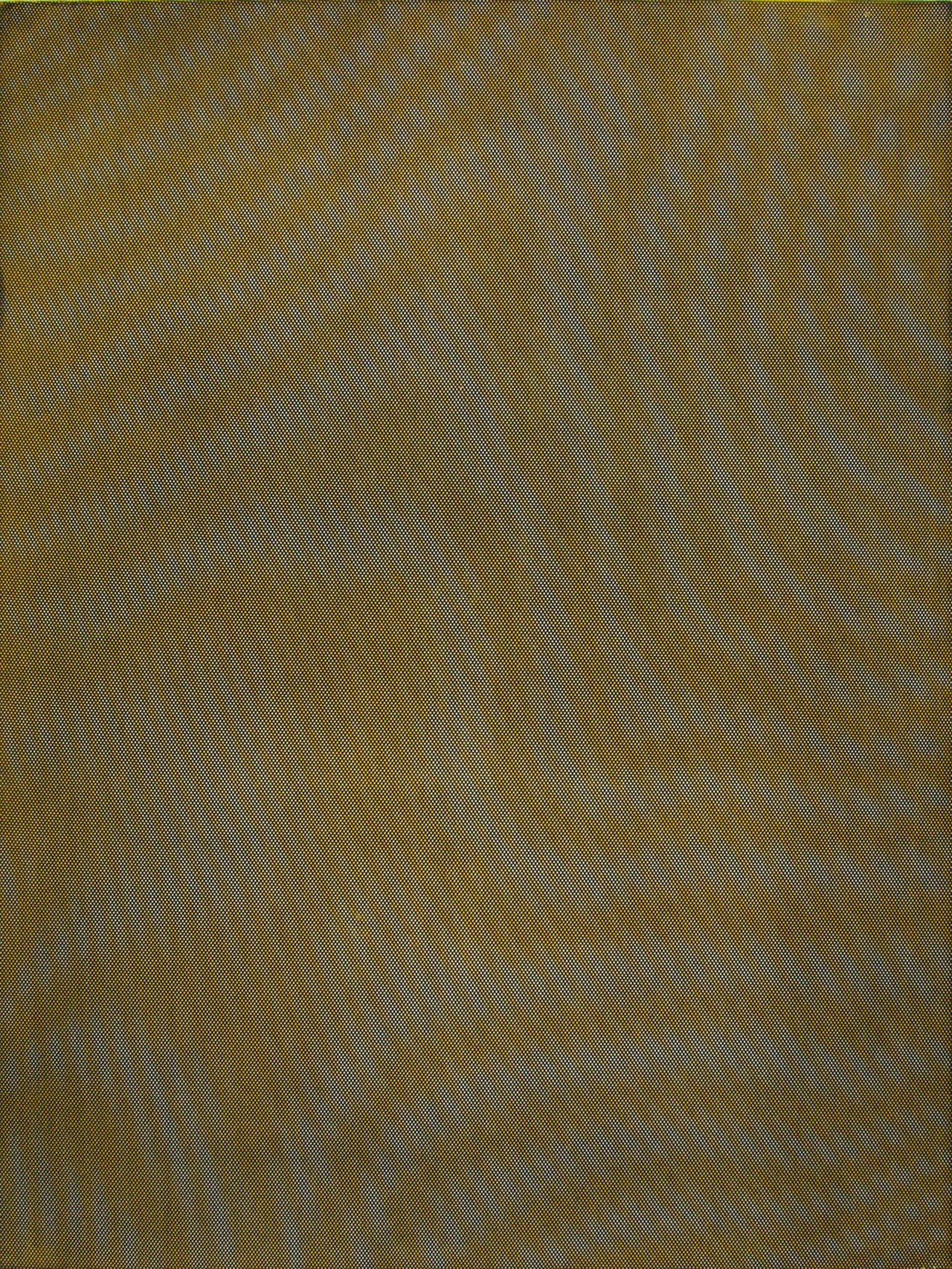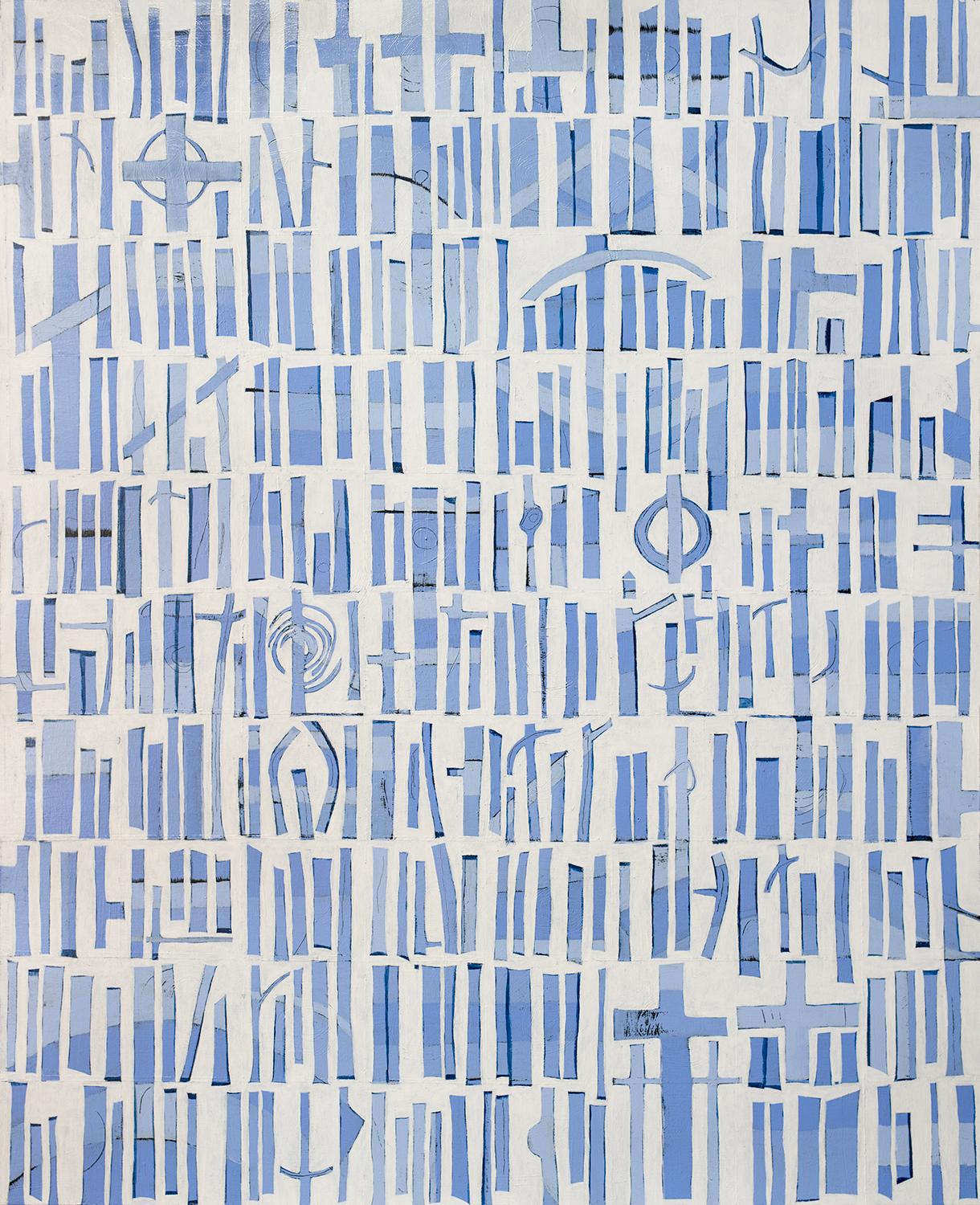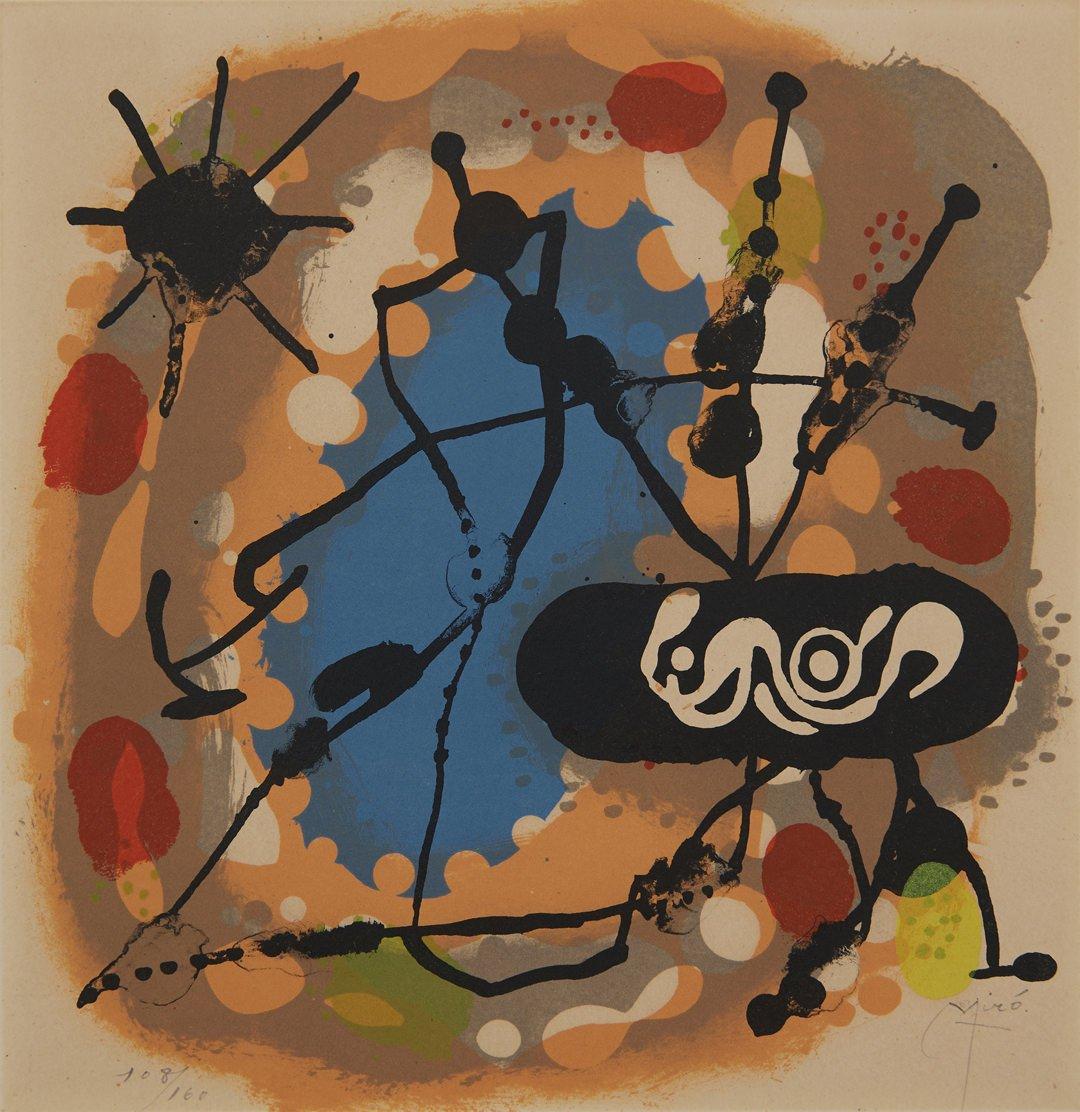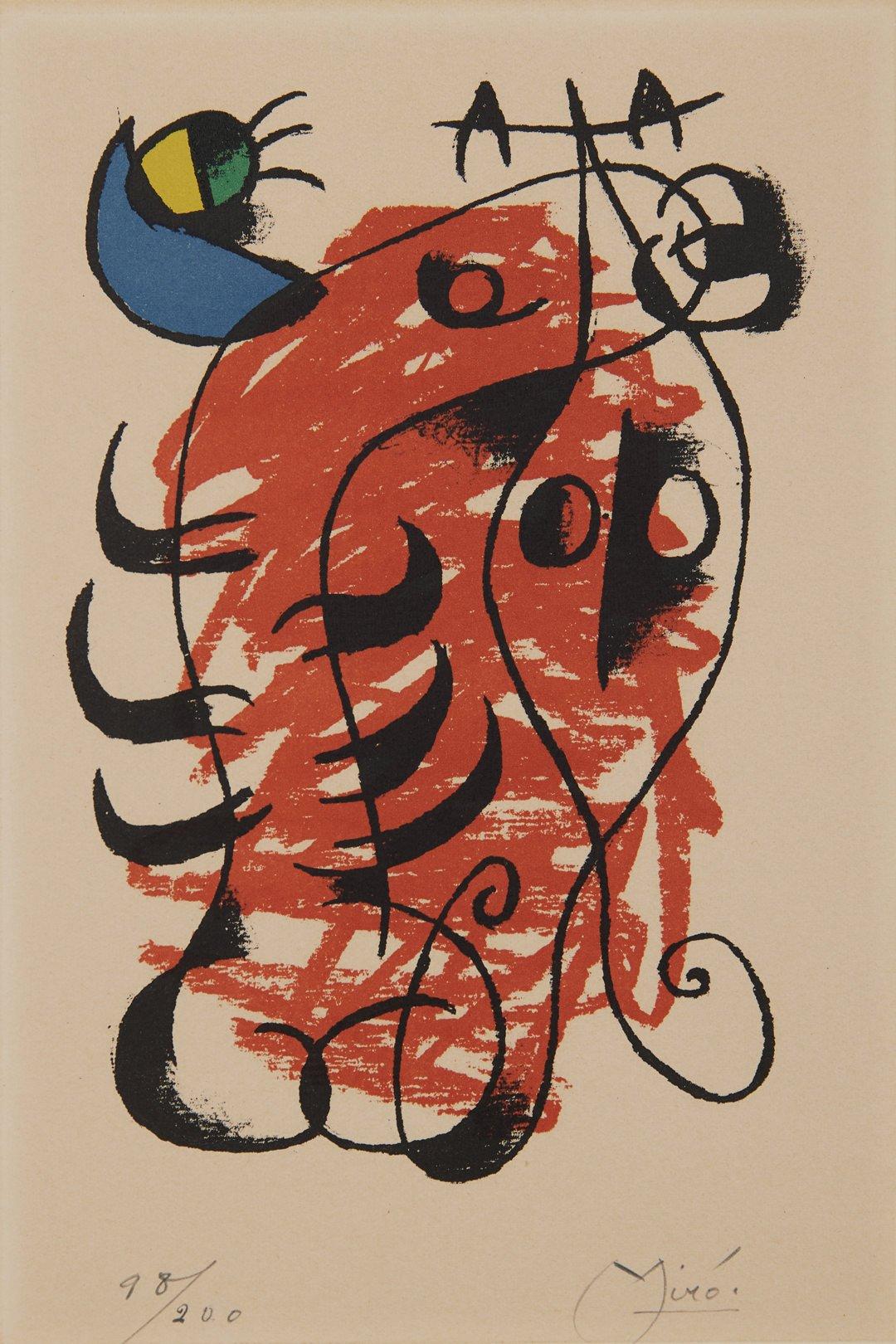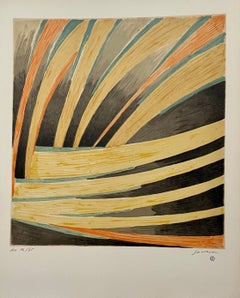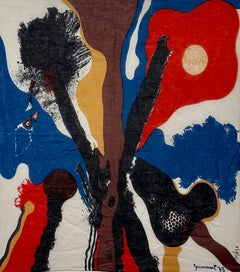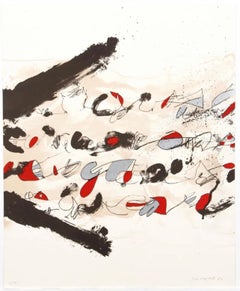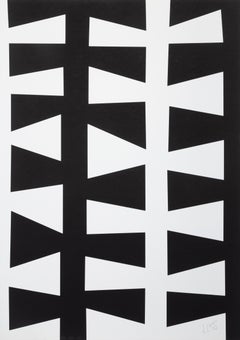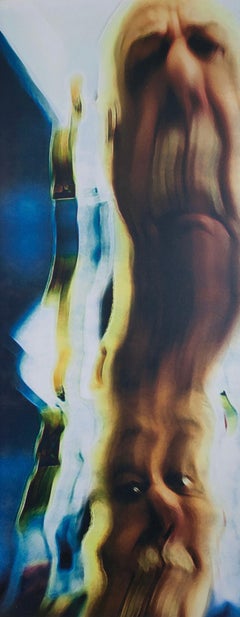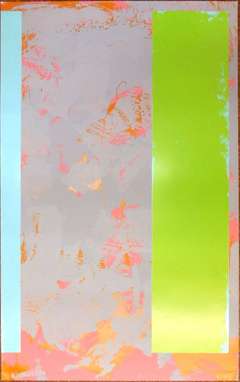
Cronion, 1973
View Similar Items
Want more images or videos?
Request additional images or videos from the seller
1 of 8
Walter Darby BannardCronion, 19731973
1973
About the Item
- Creator:Walter Darby Bannard (1934, American)
- Creation Year:1973
- Dimensions:Height: 40 in (101.6 cm)Width: 25.5 in (64.77 cm)
- Movement & Style:
- Period:
- Condition:never been framed. very minor edge wear.
- Gallery Location:Surfside, FL
- Reference Number:1stDibs: LU382112324
Walter Darby Bannard
Bannard is known for his lyrical abstraction, minimalism, and color field paintings. Exhibition: Pasadena Art Museum 1973.
About the Seller
4.9
Platinum Seller
Premium sellers with a 4.7+ rating and 24-hour response times
Established in 1995
1stDibs seller since 2014
1,747 sales on 1stDibs
Typical response time: 2 hours
Authenticity Guarantee
In the unlikely event there’s an issue with an item’s authenticity, contact us within 1 year for a full refund. DetailsMoney-Back Guarantee
If your item is not as described, is damaged in transit, or does not arrive, contact us within 7 days for a full refund. Details24-Hour Cancellation
You have a 24-hour grace period in which to reconsider your purchase, with no questions asked.Vetted Professional Sellers
Our world-class sellers must adhere to strict standards for service and quality, maintaining the integrity of our listings.Price-Match Guarantee
If you find that a seller listed the same item for a lower price elsewhere, we’ll match it.Trusted Global Delivery
Our best-in-class carrier network provides specialized shipping options worldwide, including custom delivery.More From This Seller
View AllRussian French Avant Garde Lithograph Rhythm in Colour Vibrant Abstract Print
By Léopold Survage
Located in Surfside, FL
Léopold Survage (French/Russian, 1879-1968),
"Rythmes Colorés", 1967-1968
Lithograph on Vélin d'Arches paper, Printed by Mourlot, Paris
Hand signed in pencil and numbered "AN 16/75"...
Category
1960s Abstract Abstract Prints
Materials
Lithograph
Bold Abstract Latin American Screenprint Scarf Textile Art Print Josep Guinovart
By Josep Guinovart Bertrán
Located in Surfside, FL
This is a thin cotton (that is my best estimate. it does not feel like silk) scarf, woven textile, fabric piece. It is signed in the print and hand numbered.
Josep Guinovart (1927 –2007) was a Spanish Catalan painter most famous for his informalist or abstract expressionist work.
In 1941, he began to work as a decorator. Three years later, he started his studies at the Escuela de Artes y Oficios de la Llotja (Art School of La Llotja) where he stayed until 1946.
He first exhibited his work in 1948 in Galerías Syla in Barcelona. In 1951, he produced his first engravings entitled 'Homage to Federico García Lorca'. Two years later, he was awarded a grant from the French Institute to study in Paris for nine months. Here he discovered the cubist works of Henri Matisse and Pablo Picasso and travelled to Belgium, Holland and Germany.
On his return to Barcelona and after a period working as an illustrator and set designer, around 1957 he began moving towards abstract art. His work is highly unconventional and usually on a large scale, using a wide range of materials, three-dimensional objects and organic substances such as eggshell, earth and straw. He has done some amazing 3D wool tapestry wall hangings...
Category
20th Century Abstract Abstract Prints
Materials
Textile
Michael David, Mugual Indian Star Abstract Expressionist Color Etching Print
By Michael David
Located in Surfside, FL
Michael David (b. 1954)
Hand signed, Prestige Art blind stamp; edition of 45; 1993
Color Etching on Arches Buff
"The Mugual Series"
Printed by the artist with master printers Sylvia Roth and Mary Seibert at Hudson River Editions and published by Prestige Art Ltd., Mamaroneck, New York.
22 X 18 framed
Michael David Singer; born 1954, is an American painter. Born in Reno, Nevada, David's family relocated to Brooklyn, New York, where he was raised. He attended SUNY Fredonia for one year and in 1976 received a B.F.A. from Parson's School of Design. Michael David is classified as an abstract painter, best known for his use of the encaustic technique, which incorporates pigment with heated beeswax. He is also known for his works in mixed-media figure painting, photography and environmental sculpture. His work is included in the permanent public collections of the Metropolitan Museum of Art, the Guggenheim Museum, the Jewish Museum in New York, the Museum of Contemporary Art in Los Angeles, and the Los Angeles County Museum of Art, among others.
In 1976 David, erotic photographer Roy Stuart and Fredonia friend Richie Stotts formed a band called The Numbers, with David on bass. The group was a fixture in New York's early punk rock music scene, playing in clubs alongside punk pioneers Television, Blondie and the Ramones. David also played bass with punk innovators Jerry Nolan of The New York Dolls, Cheetah Chrome of The Dead Boys, Marky Ramone, Peter Gordon, David Van Tieghem and the free-improvisation noise music group Borbetomagus.
In 1977, The Numbers were approached by impresario Rod Swenson, who was seeking musicians to form a backing band for singer Wendy O. Williams, whose radical persona he sought to exploit as punk music and performance art. The Numbers became The Plasmatics but the attention David began to gain as an important voice in the art world caused him to leave the band to pursue his burgeoning painting career.
David's first one-man show was in 1981 at the historic Sidney Janis Gallery. That year he was awarded a Guggenheim Fellowship, at the time the youngest artist ever to do so, and in 1982 was awarded an American Academy of Arts and Letters prize. He went on to exhibit at galleries worldwide and was represented by Knoedler & Co. for the next 25 years.
David is best known for using the encaustic technique of painting, which uses pigment combined with heated beeswax. David built his early career on abstraction and religious iconography, which formed the bulk of his output until 1999. Since then he has also experimented with representational painting and traditional photography.
In 2000, he developed the "Chortens" and "Populations" series, about which prominent art historian and critic Donald Kuspit writes: "They are enigmatic works, all the more so because of the way their innumerable details form singularly monumental, intimidating wholes. Dense yet delicate, awesome yet intimate, they convey the fragility as well as grandeur of sheer being. Layer upon layer of paint piles up like layer upon layer of coral, but the textural result is more epic, not to say startling, than any coral island, and virtually any other existing abstract expressionist painting (upon which they are stylistically founded)."
In 2001, David developed bi-lateral neuropathy due to being poisoned by gases released by overheated beeswax used in the encaustic process. The disease left him with partial paralysis of his legs, slowing the production of his painting for a number of years. That year, David began painting one of his best-known series, the "fallen Toreadors", inspired by 19th century French Realist painter Édouard Manet's "The Dead Toreador" of 1864.
In 1993, David experimented at the "20x24" Polaroid studio in Manhattan, which resulted in a series of portraits of playwright Edward Albee and of friend Jackie Gross, which would become the ongoing "Jackie" series of mixed-media works. When neuropathy rendered him unable to paint during 2003, he returned to the 20x24 camera and shot large-format Polaroids inspired by Caravaggio; nude men and women dressed as Toreadors, and religious imagery.
In 2002, David began to develop The Greenhouse Project, an evolving "architectural construct" based on historical American Antebellum greenhouses built using the actual glass negatives sold to starving farmers in the post-American Civil War South. David has indicated that each greenhouse will, through the display of photography and use of social networking, create a forum and exhibit for ideas and artifacts related to civil and human rights; the specifications of each greenhouse particular to the community in which each is built.
David's work was reviewed in Artforum and Art in America, and is considered one of the last links to the New York School of painting. David may be the most innovative master of immediate surface since the abstract expressionists. He has acknowledged his debt to Abstract Expressionism, but he has transformed it. Where the abstract expressionist paintings of the forties and fifties seem like modern cave paintings, as their crude, unfocused, often meandering, turbulent painterliness suggests, and as such to reinstate prehistory, David seems to turn the cave into a temple, as his more considered, concentrated, indeed, dense, contemplative painterliness indicates, so that his paintings have the aura of post history.
SELECT GROUP EXHIBITIONS
2010-2011 “Post Mammalian Tension, Michael David & Scott Browning”, Bill Lowe Gallery, Atlanta, GA
2006 “Unspoken Connections,” The Lowe Gallery, Santa Monica, CA
2004 The Lowe Gallery, Atlanta, GA
1999 “Waxing Poetic: Encaustic Art in America,” Montclair Art Museum, Montclair, NJ
“Forty Years of American Drawings,” Raab Galerie, Berlin, Germany
1997 “Michael David and James Hyde,” Margulies Taplin Gallery, Coral Gables, FL
1996 “Different Sides: Drawings/Photographs/Prints/Paintings/Sculpture,” Knoedler and Company, New York, NY
1994 “Michael David: Paintings / Nicholas Pearson: Sculpture,” Margulies Taplin Gallery, Boca Raton, FL
1991 “Working with Wax: Ten Contemporary Artists,” Tibor de Nagy Gallery, New York, NY
1989 “Projects and Portfolios: the 25th Print National,” The Brooklyn Museum, Brooklyn, NY
“Important Works on Paper,” Meredith Long and Company, Houston, TX
“New Editions,” Pace Prints, New York, NY
1988 “Golem! Danger, Deliverance, and Art,” The Jewish Museum, New York, NY
1987 “Monotypes,” Pace Editions, New York, NY
“Working in Brooklyn / Painting,” The Brooklyn Museum, Brooklyn, NY
“Art Against AIDS,” benefit exhibition Knoedler and Company, New York, NY
“Jewish Themes: Contemporary American Artists,” Spertus, Chicago, IL
1986 “First Impressions: Recent Monotypes by 15 Artists,” Allan Frumkin Gallery, (Charles Arnoldi, Pat Steir etc)
“Saints and Sinners: Contemporary Responses to Religion,” De Cordova Museum, Lincoln, MA
“Jewish Themes: Contemporary American Artists,” The Jewish Museum, New York, NY
“Public and Private American Prints Today,” Brooklyn Museum, Brooklyn, NY
1985 “A Decade of Visual Arts at Princeton: 1975-1985,” The Art Museum, Princeton University, Princeton, NJ
1984 “Cunningham Dance Benefit,” Leo Castelli Gallery, New York, NY (Robert Rauschenberg, Arman etc)
Twelve Abstract Painters, Siegel Contemporary (Elizabeth Murray, Melissa Meyer, Leon Polk Smith etc.)
“Small Paintings,” Jeffrey Hoffeld Gallery, New York, NY
1982 “Elaine de Kooning’s Inadvertent Collection,” Elaine Benson Gallery, Bridgehampton, NY
1981 “New Visions,” The Aldrich Museum of Contemporary Art (James Biederman, Louisa Chase,Mel Kendrick etc.)
1980 “Seven Young Americans,” Sidney Janis Gallery, New York, NY (Sean Scully, Thornton Willis...
Category
1990s Abstract Expressionist Abstract Prints
Materials
Etching
Abstract Latin American Art Spanish Catalan Lithograph Josep Guinovart New York
By Josep Guinovart Bertrán
Located in Surfside, FL
Guinovart, Josep (Spanish/Catalan, 1927-2007), Untitled Abstract, 1984, lithograph on paper, hand signed, dated and marked E.A. (artist's proof) in pencil at bottom, full sheet 26.75 x 22 inches, unframed.
Josep Guinovart (1927 –2007) was a Spanish Catalan painter most famous for his informalist or abstract expressionist work.
In 1941, he began to work as a decorator. Three years later, he started his studies at the Escuela de Artes y Oficios de la Llotja (Art School of La Llotja) where he stayed until 1946.
He first exhibited his work in 1948 in Galerías Syla in Barcelona. In 1951, he produced his first engravings entitled 'Homage to Federico García Lorca'. Two years later, he was awarded a grant from the French Institute to study in Paris for nine months. Here he discovered the cubist works of Henri Matisse and Pablo Picasso and travelled to Belgium, Holland and Germany.
On his return to Barcelona and after a period working as an illustrator and set designer, around 1957 he began moving towards abstract art. His work is highly unconventional and usually on a large scale, using a wide range of materials, three-dimensional objects and organic substances such as eggshell, earth and straw.
In 1962, he illustrated a book of poetry entitled Posies by Joan Salvat-Papasseit for the Ariel Editorial. He won many accolades for his work throughout the 1970s and 80s, including Spain's National Award for Plastic Arts in 1982. In 1994, a museum foundation dedicated to his art was inaugurated in Agramunt, his mother's birthplace to which he always felt a special attachment.
In 2006 he designed the winery Mas Blanch i Jové in La Pobla de Cérvoles (Lleida) and created The Artists' Vineyard, a project intended to mix sculptures and other art works from different artists in the middle of a vineyard. The Artists' Vineyard was inaugurated after his death in 2010 with the unveiling of his sculpture The Countryside Organ: a music instrument, 6 meters height, for the wind to sing the vines. This winery also displays the 10.5 meters work In Vino Veritas...
Category
1980s Abstract Abstract Prints
Materials
Lithograph
1960's California Pop Art Abstract Expressionist LA Lithograph "About Women"
Located in Surfside, FL
John Altoon (American, 1925-1969)
From the 'About Women' Series.
Color lithograph
1965/66,
Hand signed and editioned in pencil with the chop mark of Gemini G.E.L. publishers
John Altoon (1925 - 1969), an American artist, was born in Los Angeles to immigrant Armenian parents. From 1947–1949 he attended the Otis Art Institute, from 1947 to 1950 he also attended the Art Center College of Design in Los Angeles, and in 1950 the Chouinard Art Institute. Altoon was a prominent figure in the LA art scene in the 1950s and 1960s. Exhibitions of his work have been held at the Museum of Contemporary Art San Diego, Whitney Museum of American Art, New York, Corcoran Gallery, Washington D.C, Fine Arts Museums of San Francisco, The Baxter Museum, Pasadena, and The Los Angeles County Museum of Art (LACMA).
Altoon's work was influenced by the Abstract Expressionism Movement although he is best known for his figurative drawings of the 1960s, with as Leah Ollman describes "a vocabulary of vaguely figurative, botanical and biological forms that he pursued until his death." He was part of the "Ferus group" of artists so called for their association to the Ferus Gallery that operated in Los Angeles in 1957–1966. Some of the other artists included in this group are Edward Kienholz, Larry Bell, Robert Irwin, Billy Al Bengston. He was featured in the Cool School documentary, a film about Altoon and other Ferus Gallery artists such as Walter Hopps and Ed Kienholz...
Category
1960s Abstract Expressionist Abstract Prints
Materials
Lithograph
Large Abstract Expressionist Color Monotype Oil Painting Tom Lieber Mixed Media
By Tom Lieber
Located in Surfside, FL
Tom Alan Lieber, (American, born 1949),
GTW TL-11 1986,
Oil and mixed media on paper,
30.25 x 44 inches,
Hand signed and dated lower right
Provenance: Garner Tullis Workshop, N....
Category
1980s Abstract Expressionist Abstract Paintings
Materials
Mixed Media, Oil, Monotype
You May Also Like
Werkubersicht/Work-Overview E, Large Silkscreen by Leon Polk-Smith
By Leon Polk Smith
Located in Long Island City, NY
An original hand-signed and numbered minimalist silkscreen from the Werkubersicht/Work-Overview Portfolio. Leon Polk Smith is credited with the founding of the hard-edge art movement...
Category
1970s Abstract Geometric Abstract Prints
Materials
Screen
Untitled Self-Portrait
By John Chamberlain
Located in Sag Harbor, NY
JOHN CHAMBERLAIN
Untitled Self-Portrait, 2006
Digital monoprint on canvas, mounted on wood.
Unsigned.
W 36” x H 90 1⁄2”
Chamberlain began to explore photography in the late 1960s...
Category
Early 2000s Abstract Expressionist Abstract Prints
Materials
Canvas, Digital
Untitled Self-Portrait
By John Chamberlain
Located in Sag Harbor, NY
JOHN CHAMBERLAIN
Untitled Self-Portrait, 2006
Digital monoprint on canvas, mounted on wood.
Unsigned.
W 27” x H 90 1⁄2”
Chamberlain began to explore photography in the late 1960s...
Category
Early 2000s Abstract Expressionist Abstract Prints
Materials
Canvas, Digital
Untitled
By John Chamberlain
Located in Sag Harbor, NY
JOHN CHAMBERLAIN
Untitled, 2006
Digitally manipulated and assembled images, monoprint on canvas and mounted on wood.
Unsigned.
W 27” x H 90 1⁄2”
Chamberlain began to explore photo...
Category
Early 2000s Abstract Expressionist Abstract Prints
Materials
Canvas, Digital
$120,000
Untitled Self-Portrait
By John Chamberlain
Located in Sag Harbor, NY
JOHN CHAMBERLAIN
Untitled Self-Portrait, 2006
Digitally monoprint on canvas, mounted on wood.
Unsigned.
W 18” x H 90 1⁄2”
Chamberlain began to explore photography in the late 196...
Category
Early 2000s Abstract Expressionist Abstract Prints
Materials
Canvas, Digital
Untitled Self-Portrait
By John Chamberlain
Located in Sag Harbor, NY
JOHN CHAMBERLAIN
Untitled Self-Portrait, 2006
Digital monoprint on canvas, mounted on wood.
Unsigned.
W 18” x H 90 1⁄2”
Chamberlain began to explore photography in the late 1960s...
Category
Early 2000s Abstract Expressionist Abstract Prints
Materials
Canvas, Digital
